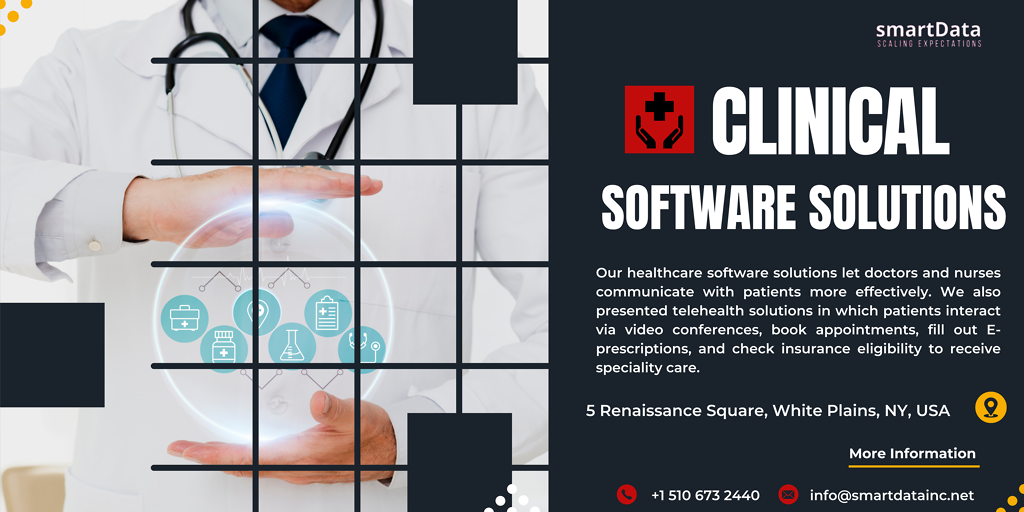![]() July 7, 2023 04:14
July 7, 2023 04:14
Clinical documentation is a critical part of healthcare. It helps to ensure that patients receive the best possible care, and it also provides valuable data for research and quality improvement. However, clinical documentation can be a time-consuming and complex process. This is where clinical software solutions can help.
What are Clinical or Medical Software Solutions?
Medical software solutions are electronic health records (EHRs) and other software applications that are used to manage patient care. These solutions can help to simplify documentation by providing templates, checklists, and other tools that can help clinicians to document more efficiently. They can also help to improve accessibility by providing features such as speech-to-text dictation and mobile access.
Benefits of Medical software solutions
There are many benefits to using clinical software for documentation and accessibility. These benefits include:
-
Improved efficiency
By providing templates, checklists, and other tools, patient care software can assist clinicians in streamlining documentation. This can create time for clinicians to prioritize patient care.
-
Improved accuracy
Health management solutions can help to improve the accuracy of documentation by providing built-in checks and balances. This can help to reduce errors and ensure that patient records are complete and accurate.
-
Improved accessibility
By incorporating features like speech-to-text dictation and mobile access, clinical software solutions can enhance accessibility, thereby improving user experience. This can make it easier for clinicians to document patient care, regardless of their location or disability.
-
Improved compliance
By equipping built-in tools for tracking and reporting, medical software solutions can contribute to improving compliance with regulations. This can help to ensure that healthcare organizations are meeting all applicable regulations.
-
Improved communication
Enhancing communication between clinicians and other healthcare professionals, patient care software can play a crucial role. This can result in enhanced care coordination and improved patient outcomes.
-
Increased patient satisfaction
Patients often appreciate the convenience and efficiency of clinical software. This can result in heightened patient satisfaction and loyalty.
-
Reduced costs
Clinical software solutions can help to reduce costs by streamlining the documentation process and improving efficiency. This can allocate resources toward enhancing patient care.
How to Choose a Clinical Software Solution?
When choosing a clinical software solution, there are a few factors to consider, such as:
-
The features that are most important to your organization
Some features to consider include templates, checklists, speech-to-text dictation, mobile access, and compliance tools.
-
The size of your organization
If you have a small organization, you may need a solution that is easy to use and manage. If you have a large organization, you may need a solution that can scale to meet your needs.
-
Your budget
Medical software solutions can range in price from a few hundred dollars to several thousand dollars per year. Selecting a solution that aligns with your budget is crucial.
Conclusion
Clinical software solutions can be a valuable tool for simplifying documentation and improving accessibility. If you are looking for a way to improve the efficiency and accuracy of your documentation, a clinical software solution may be a good option for you.
Also Read:
The Power of Effective Communication in Healthcare: Using Communication Software
Choosing the Right Medical Practice Management Software!
Posted July 7, 2023 04:14
